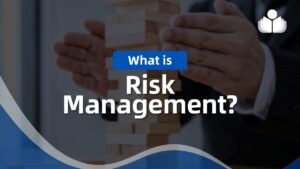This posting is a continuation of the email exchange that began last Tuesday.
“I am happy to step down and then go through the hiring process, I just don’t understand how it works. When, specifically, do I step down from the board? Is it when we have enough money to pay staff or as soon as we start providing services? We plan to put money into programs first, and staff salaries second as we have the means to do so. So, there is a good chance we will already be entrenched in service provision before we even have the money to pay anyone.”
The best advice I can give is that you should do what you’re doing. Continue the birthing process and help the baby learn to walk. Don’t worry about formalities yet. You’ll have your initial board … a board that’s doing all the work … and you won’t need staff ’til there’s more than a couple of board members can do themselves.
When the time comes, and there is sufficient income for staff salaries, then you can (in this order) assume the E.D. mantle and resign from the board. (I know that contradicts what I said earlier, but at that stage in the life of an NPO, it doesn’t make a lot of difference.) Don’t worry about the hiring process.
Once you’re the E.D., you can hire the D.D., assuming the board has authorized a budget that includes staff salaries. Do that before resigning from the board !!
As a former D.O.D., I’m sure you know that you can’t budget an expense line until you know where the money is coming from.
“You mentioned we should recruit board members “later.” When is later?”
“Later” is when you have something of substance to show prospective board members when you have something that they’d want to be part of. Recruiting board members must address their needs as well as the needs of the NPO.
“What I’m looking for is a timeline of steps: when we should add more board members above and beyond the three founders when we should create true staff/board designations, and when my role should change.”
There is no textbook timeline. The birthing and growth of each NPO is different. You must use your judgment in deciding when “it’s time.” You could also engage a consultant in organizational development to provide periodic observation/counsel.
“I would like to be the Executive Director.”
If that’s what you want, and you have the vision, there’s no reason not to go for it.
“That is my intention. Knowing I have that goal in mind, do you have any thoughts as to how I can ensure that I am keeping the best interests of the organization front and center and not letting my own interests and desires get in the way? Should I NOT look to become ED and just remain on the board (with a term limit)? Provided I do pursue that goal, and I do become staff, I don’t expect to receive any special treatment just because I founded the organization, and I understand the dangers of that situation.”
If you keep in mind and give priority to the needs of the people the NPO was created to serve, it shouldn’t be hard to keep the needs of the NPO in mind. There should not be a conflict.
In any case, since it was your vision, and the E.D. is the board’s major resource, you can keep the board focused on why they and the NPO exist.
As above (and in my “Mature Organization” piece), from birth up to puberty what is important is whether it’s a well-adjusted child doing what it should. If it gets to that point without formal staff, fine. It’ll be up to you (and the other existing board members) when it’s time to “hire” staff and formalize the structure.
Until then, just do good stuff.
“So, do we just write the hiring procedures for ED into our bylaws, and then let the board handle it? Can you point me in the right direction in terms of places to look for guidance in writing up those procedures? Are there reading materials or articles you can direct me to so I can learn more about this process? I am having trouble finding information about this specific issue in the creation of a new NPO.”
I suggest you take a look at “Starting Organizations.”
There’s a lot of stuff that will probably be of help.
“I ask all of these questions because we are going to be able to start providing services fairly quickly, so while it may be irrelevant now, it will be relevant soon and I’d rather be prepared than wait until the last minute to make decisions regarding how we will handle the process.”
You already have a pretty good idea of what’s required and what to avoid, so don’t be too concerned about a specific timeline.
Enjoy the satisfaction with the creative process and with providing service to people who need it.
BTW, Carter McNamara, the owner of the Free Management Library website, that hosts this blog, is a management consultant … and you couldn’t do better if you need counsel.
=-=-=-=-=-=-=-=-=-=-=-=-=-=
Have a comment or a question about starting, evaluating, or expanding your fundraising program? With over 30 years of counseling in major gifts, capital campaigns, bequest programs, and the planning studies to precede these three, I’ll be pleased to answer your questions. Contact me at [email protected]
=-=-=-=-=-=-=-=-=-=-=-=-=-=
If you would like to comment/expand on the above, or would just like to offer your thoughts on the subject of this posting, we encourage you to “Leave a Reply” at the bottom of this page, click on the feedback link at the top of the page, or send an email to the author of this posting.
 Sections of this topic
Sections of this topic
















